Kidney cancer treatment
Renal Cancer
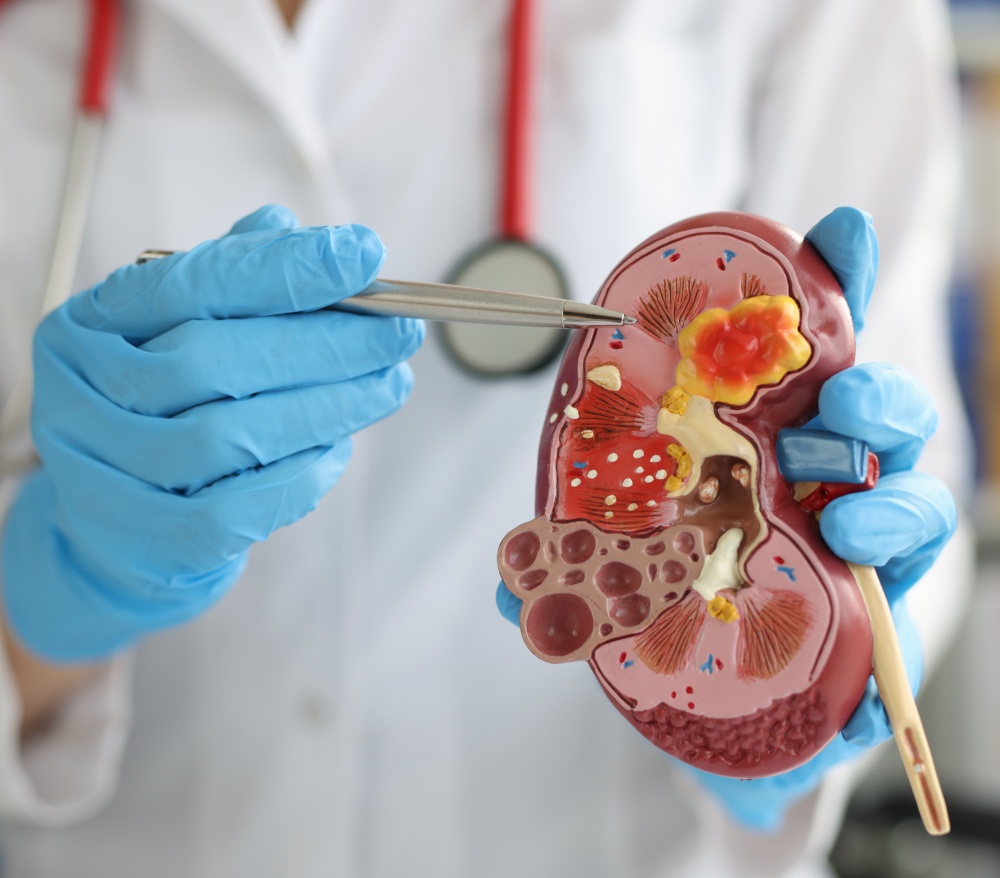
What is Renal Cancer?
Renal cancer originates in the nephrons, the functional units of the kidney. Most commonly, it arises from the proximal tubules, which are responsible for absorbing essential nutrients from blood and forming urine. Renal cancer may affect one or both kidneys but often remains localized if detected early.
Renal cancer, commonly known as kidney cancer, begins in the cells of the kidney and is one of the top 10 most common cancers in adults. The kidneys are two bean-shaped organs, each about the size of a fist, located on either side of the spine, just below the ribcage. They play a vital role in filtering waste, maintaining fluid balance, regulating blood pressure, and producing hormones.
Causes and Risk Factors for Renal Cancer
Several risk factors increase the likelihood of developing kidney cancer:
Smoking
Increases risk by up to 40%
Obesity
Higher body fat can lead to hormonal imbalances and inflammation
Hypertension (High Blood Pressure)
Chronic hypertension stresses the kidneys
Chronic use of painkillers
Long-term use of over-the-counter analgesics has been linked to renal cancer
Dialysis
Long-term dialysis for kidney failure raises cancer risk
Genetic disorders
Conditions such as von Hippel-Lindau disease, Birt-Hogg-Dubé syndrome, and hereditary papillary RCC
Family history
First-degree relatives with renal cancer increase personal risk

Symptoms of Renal Cancer
In its early stages, kidney cancer may not show any symptoms. As the tumor grows, common signs and symptoms may include:
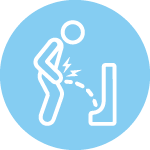
Hematuria (blood in the urine)

Persistent back or flank pain

A lump or mass in the abdomen or side

Unexplained fever

Swelling in the legs or ankles

Bone pain (in advanced stages)

Swollen lymph nodes in the neck

Varicocele (enlarged veins in the scrotum) in men

Unintended weight loss
If you experience any of these symptoms, especially in combination, consult a doctor immediately for evaluation.
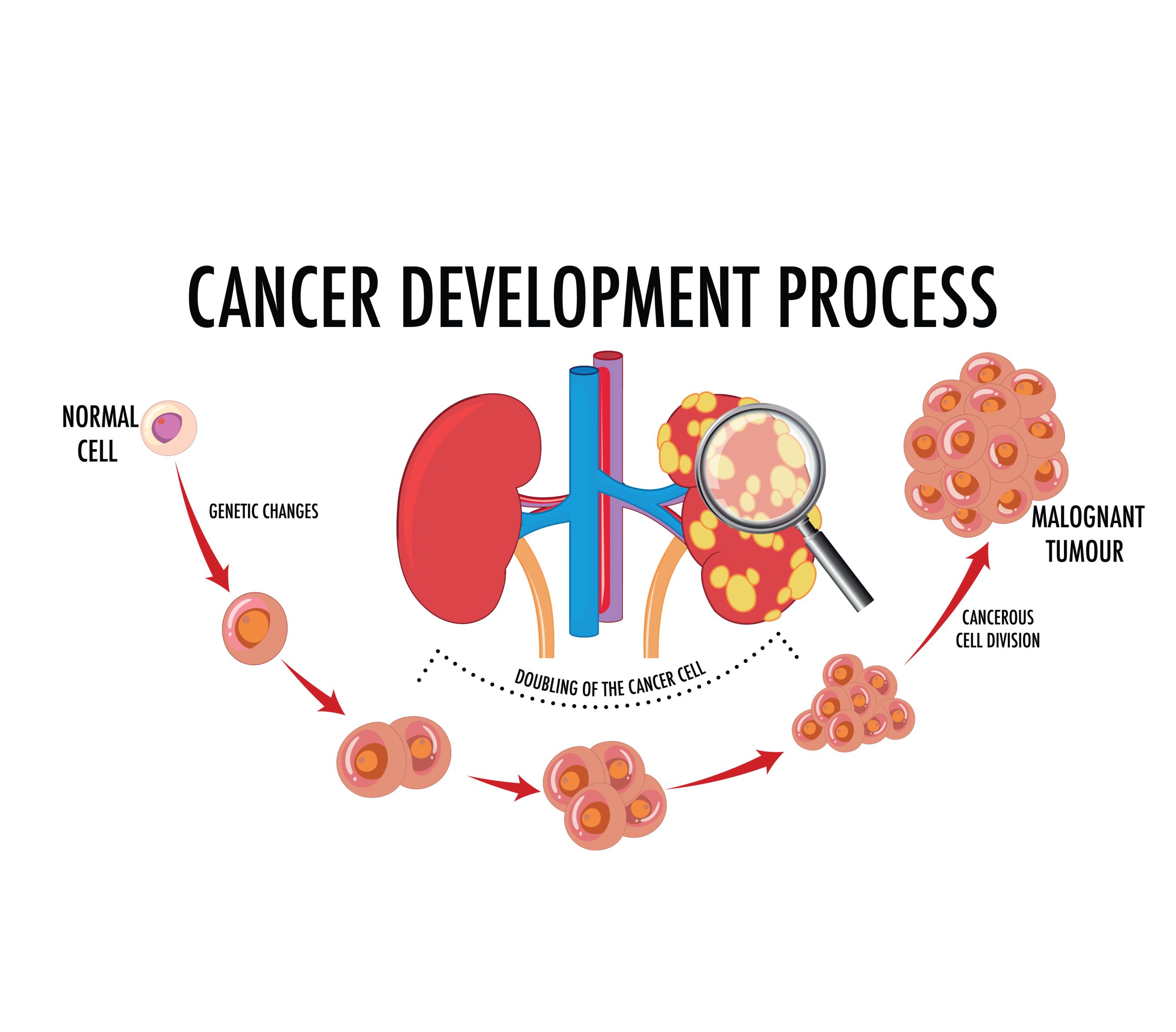
Types of Renal Cancer
There are several types of kidney cancers, each with unique characteristics:
1. Renal Cell Carcinoma (RCC)
The most common form, accounting for 85–90% of kidney cancer cases. Major subtypes include:
- Clear cell carcinoma
- Papillary RCC (Type 1 & 2)
- Chromophobe RCC
- Collecting duct carcinoma
- Urothelial Carcinoma (Transitional Cell Carcinoma)
Arises from the lining of the renal pelvis. Makes up around 5% of renal cancers.
2. Renal Sarcoma
A rare type (1–2%) originating from the kidney’s connective tissue. Types include:
- Fibrosarcoma
- Leiomyosarcoma
- Rhabdomyosarcoma
- Liposarcoma
- Osteogenic sarcoma
- Wilms Tumor (Nephroblastoma)
Primarily affects children aged 3 to 4 years. With current treatment options, Wilms tumor has excellent survival outcomes.
Preventing Kidney Cancer
While not all causes of renal cancer are preventable, lifestyle changes can reduce your risk:
- Quit smoking and avoid tobacco exposure
- Maintain a healthy weight through diet and regular exercise
- Control blood pressure with medication, low-sodium diet, and stress management
- Avoid prolonged use of painkillers without medical supervision
- Individuals on long-term dialysis or with inherited genetic conditions should undergo regular screening
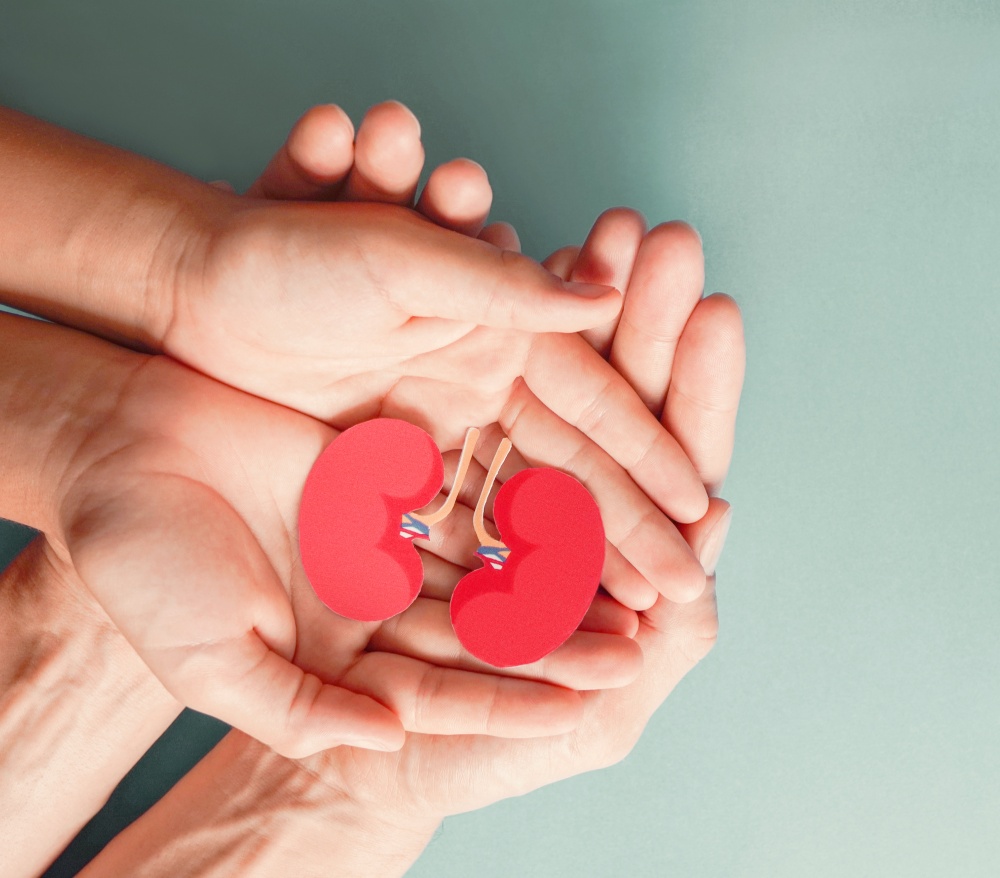
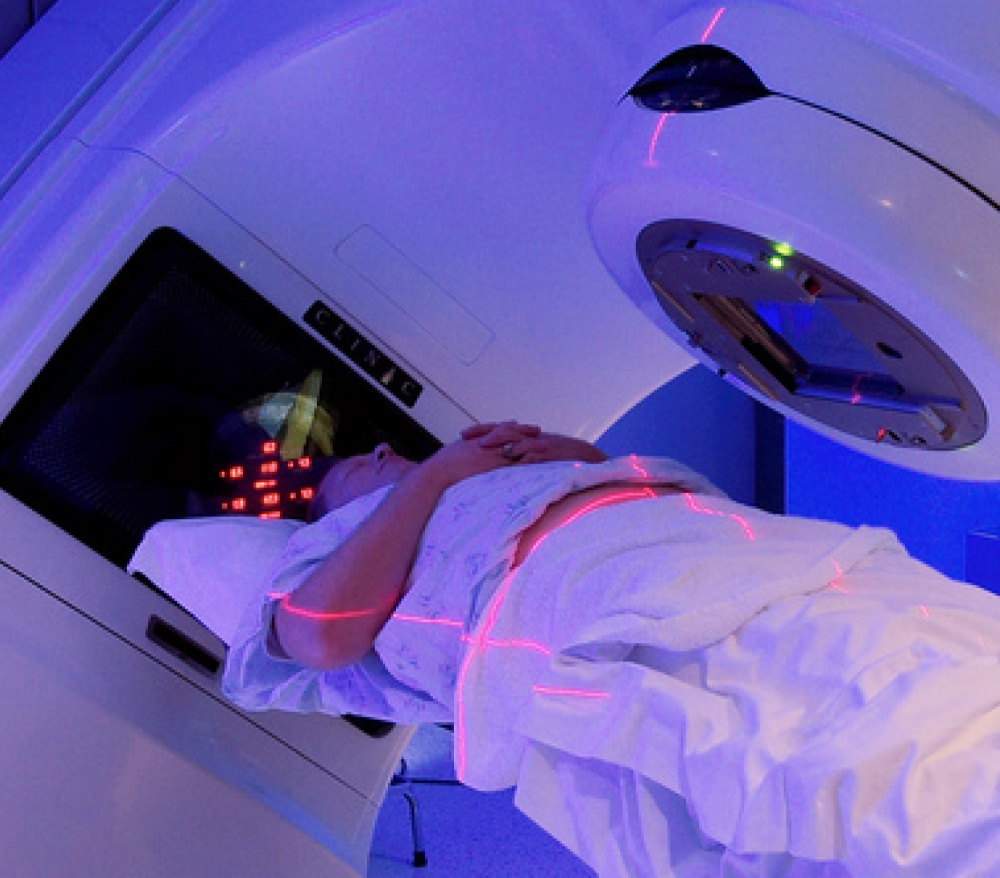
Diagnostic Tests for Renal Cancer
Diagnosis begins with a physical exam and medical history, followed by imaging and pathology tests:
Ultrasound
A non-invasive test to detect kidney masses or abnormalities.
CT Scan (Computed Tomography)
Provides detailed images of the kidney, abdomen, and pelvis to assess tumor size and stage.
MRI (Magnetic Resonance Imaging)
Used in select cases to evaluate early or complex kidney masses.
PET-CT Scan
Used in advanced or recurrent cases to check for cancer spread to lungs, bones, or liver.
Image-Guided Biopsy
For metastatic or advanced cases, a biopsy may be done using ultrasound or CT guidance to confirm cancer type and grade.
Urine Cytology
Especially helpful in suspected transitional cell carcinoma to detect cancer cells in the urinary tract.
Living with One Kidney
Most people can live a normal, healthy life with a single kidney. If one kidney is removed, the other can take over its function completely, provided it is healthy
Renal cancer, when detected early, is highly treatable. At Thangam Hospital, we provide a multidisciplinary approach to kidney cancer treatment — combining advanced diagnostics, expert surgical care, and the latest in targeted and immunotherapy options to deliver the best outcomes.
If you’re experiencing symptoms or have risk factors for kidney cancer, schedule a consultation with our oncology specialists today.
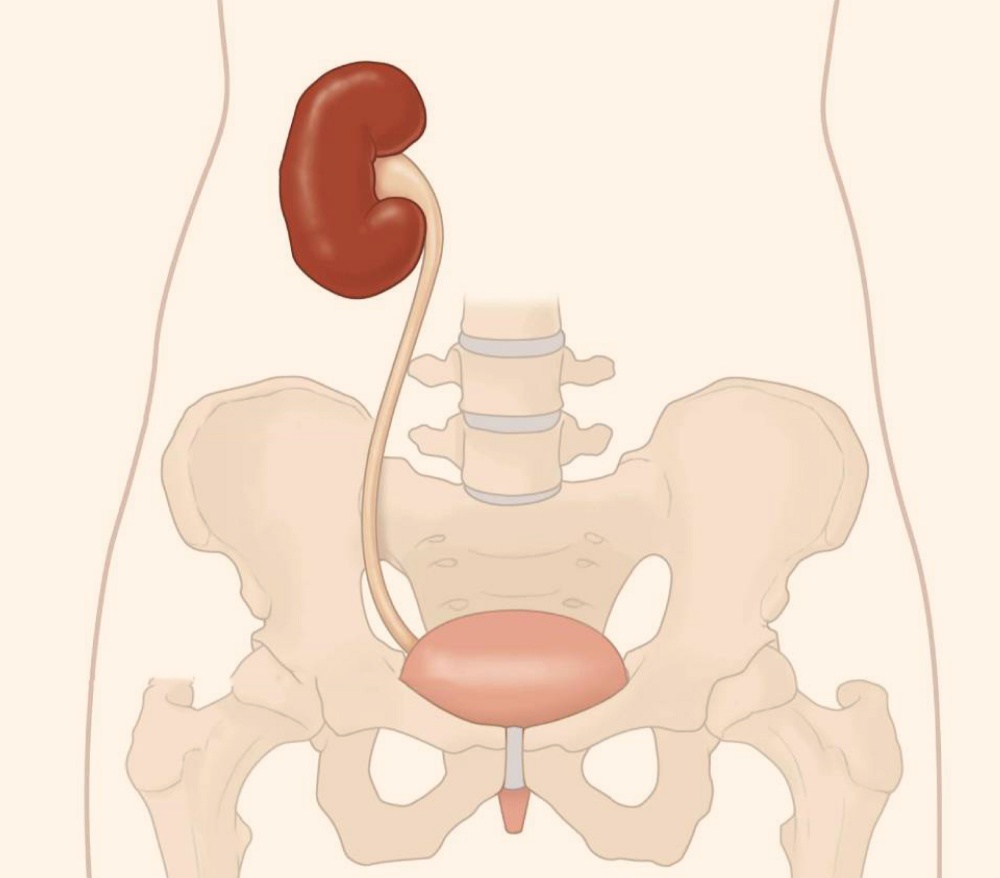
Treatment Options for Renal (Kidney) Cancer
Treatment depends on the cancer stage, tumor size, patient’s overall health, and presence of metastasis. Options include:
Surgical removal remains the primary treatment for localized kidney cancer.
- Radical Nephrectomy
Removal of the entire kidney along with surrounding tissues, and sometimes the adrenal gland and lymph nodes. Preferred for large or central tumors. - Partial Nephrectomy (Nephron-Sparing Surgery)
Removes only the tumor and a small margin of healthy tissue. Recommended for small tumors to preserve kidney function. - Cytoreductive Nephrectomy
In select stage IV cases where the primary tumor causes pain or heavy bleeding, nephrectomy may be considered to improve quality of life.
Targets specific proteins and pathways within cancer cells to stop growth. Common drugs include:
Sunitinib, Pazopanib, Cabozantinib, Lenvatinib, Bevacizumab, Sorafenib
Used in metastatic or advanced cases, either before surgery (neoadjuvant) or after (adjuvant).
Not typically used for primary kidney tumors, but effective in relieving symptoms of metastatic disease (e.g., bone pain).
Boosts the body’s immune system to recognize and destroy cancer cells. Often used for advanced or recurrent kidney cancer.



